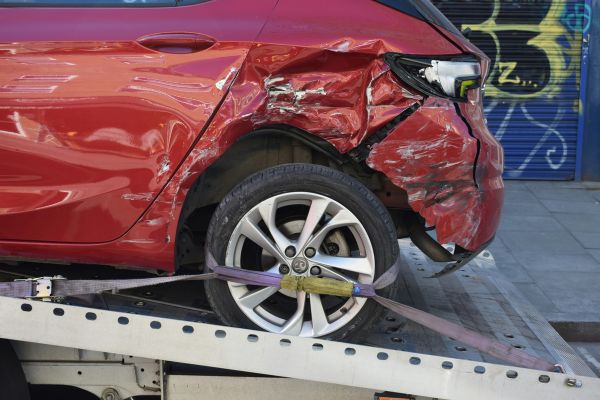Do You Really Need Rental Reimbursement Coverage?
If you’ve been shopping for car insurance in Raleigh, NC, you’ve likely come across rental reimbursement coverage as an option.
But what exactly is it, and do you really need it? The short answer is yes—and for good reasons.
Rental reimbursement coverage ensures that you’re not left scrambling for transportation while your car is in the shop after an accident. If you’re unsure about adding this to your policy, this article will give you all the information about rental reimbursement to help you make an informed decision.
We’re breaking down what it is exactly, what it covers and how much it will cost.
What Is Rental Reimbursement Coverage?
Suppose you get into an accident, and your vehicle is damaged, and you have collision or comprehensive coverage as part of your auto policy. Great! In that case, the insurance company will pay to repair it.
The average duration for a car repair after a collision is 11 days. This means that you will not have access to your car. Will you need transportation?
Rental reimbursement coverage will pay the cost of your rental car, up to the limits of the policy.
How Does Rental Car Reimbursement Coverage Work?
If your car is damaged in a collision and needs repairs, rental reimbursement coverage allows you to rent a vehicle while your car is being fixed.
Your insurance company will coordinate the rental, and the coverage will pay for it up to the limits specified in your policy.
This way, you won’t be left without transportation during the repair period.
What Happens if Fault is Disputed?
If you and the other driver don’t agree on who’s at fault after an accident, things can become more complicated.
However, if you have rental reimbursement coverage, you can contact your insurance company to arrange for a rental car right away. Later, if it’s determined that the other driver was at fault, your insurer will work with their insurance company to recover the costs.
Without rental reimbursement coverage, you’ll need to wait and see if you can be reimbursed for the cost of a rental car. If it’s decided that the accident was your fault, you’ll have to cover the rental expenses yourself.
If the other driver is found to be at fault, you can seek reimbursement from their insurance company for the rental car costs you’ve already paid.
Why Do You Need Rental Reimbursement Coverage?
There are numerous advantages to having rental reimbursement coverage on your auto policy. This is why, at the Craig-Peterson Agency, we encourage you to get this coverage. The advantages are:
Cheaper Cost
Paying for alternative transportation out of pocket when your vehicle is being repaired after a collision can be very expensive. This is especially true if you have to rent a car. Getting rental reimbursement coverage is a cheaper alternative. The coverage is usually affordable because most insurers have business deals with car rental companies.
Convenience
Not having a mode of transportation can be very disruptive to your life, especially if you hadn’t set aside some emergency money for this purpose in advance. Having rental reimbursement coverage as part of your auto policy eliminates this hurdle. Additionally, your insurer will conveniently provide you with a rental car as soon as they take away your vehicle for repair.
What Does Rental Reimbursement Typically Cover?
Rental reimbursement typically covers the cost of renting a car from an approved rental agency while your vehicle is in the shop.
This coverage can also extend to scenarios where you need a rental car for a certain number of days or up to a specific dollar amount, which will be outlined in your policy.
How Much Rental Reimbursement Coverage Do I Need?
Like other types of insurance, rental reimbursement coverage comes with limits. Policies usually have both a daily limit and a total claim limit.
The daily limit is the maximum amount your insurer will pay each day for a rental vehicle, so any extra costs will come out of your pocket.
The total claim limit is the highest amount your insurer will cover for each claim, which could either be a set dollar amount (e.g., $800) or a time limit (e.g., 30 days). If you need a rental car for a long time, you may quickly hit these limits. Some insurance companies offer various options for coverage limits, while others may only provide one.
To figure out how much coverage you need, consider rental car rates in your area and how critical access to a vehicle is for you. If you only drive occasionally, you might not need much coverage.
However, if you rely on your car for daily commuting, you’ll want to ensure your rental reimbursement coverage provides enough protection to keep you on the road without interruptions.
How Long Will Insurance Pay For A Rental Car After An Accident?
Rental reimbursement will typically cover a rental car for the duration of your vehicle’s repair, but this is subject to the terms of your policy. Most policies set limits, either by the number of days you can have a rental or by a maximum dollar amount.
For example, your coverage might allow for up to 30 days of car rental or $900 in rental fees—whichever comes first. It’s important to check your specific policy for these details.
Rental Reimbursement Coverage Limits
Every policy has coverage limits, so it’s essential to understand what yours includes. Typical limits are based on a daily dollar amount (for example, $30 per day) and a total maximum amount (for example, $900).
Make sure your limits fit your needs, especially if you drive a more expensive vehicle that might require a higher-cost rental.
Is There A Deductible For Rental Reimbursement Coverage?
Unlike collision or comprehensive coverage, rental reimbursement coverage does not usually require you to pay a deductible. This means you won’t need to worry about upfront costs when getting a rental vehicle.
Are you a Raleigh, NC, resident looking for auto insurance with useful coverage add-ons? Contact Craig Insurance Group today.
Rental Reimbursement Coverage FAQs
Is rental reimbursement coverage worth it?
Yes, rental reimbursement coverage is generally worth it, especially if you rely on your vehicle daily. Without it, you could face high out-of-pocket expenses for a rental car while your vehicle is being repaired after an accident. If your car is in the shop for several days—or even weeks—rental reimbursement coverage will give you peace of mind and financial relief.
How much does rental reimbursement coverage cost?
The cost of rental reimbursement coverage varies depending on your insurance provider and policy, but it’s generally very affordable. In many cases, you can add this coverage to your auto insurance for just a few dollars a month. Generally between $2 – $15 per month. The small cost of this coverage can easily save you hundreds of dollars in rental expenses if your car is in the shop for repairs after an accident.
Does rental reimbursement cover rental cars after all accidents?
If you’re involved in an accident and your car needs repairs, the rental reimbursement will cover the cost of a rental vehicle. However, this coverage might not apply if your vehicle isn’t being repaired or if the accident wasn’t covered under your auto policy (for example, if you only have liability only insurance).
Can I get a luxury rental with rental reimbursement coverage?
Most rental reimbursement coverage limits apply to standard rental vehicles, not luxury cars. Coverage usually comes with a daily dollar limit (e.g., $30 – $50 per day) and a maximum number of days for which the coverage applies. If you want to rent a luxury vehicle, you would likely have to pay the difference out of pocket.
Is rental reimbursement included in full coverage?
Rental reimbursement coverage is typically not included in what is commonly referred to as “full coverage” (which usually includes liability, collision, and comprehensive coverage). It is an optional add-on that you must elect to include in your policy. Even if you have full coverage, rental reimbursement needs to be added separately if you want it as part of your protection.




















